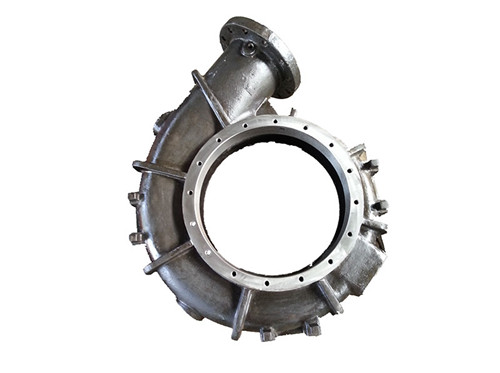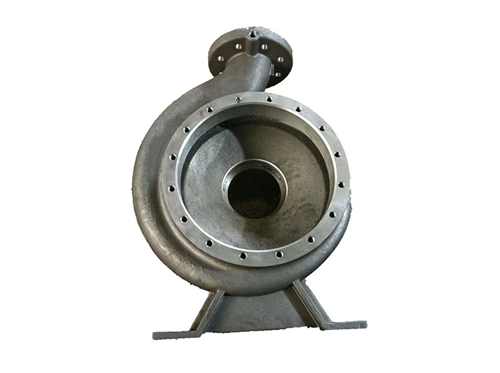Industrial pump components play a pivotal role in various sectors, ensuring smooth operations and efficient fluid transfer processes. Understanding the intricacies of these components is essential for optimizing performance and ensuring longevity. In this comprehensive guide, we delve into the diverse world of industrial pump components, examining their materials, functions, and significance in different applications.
Introduction to Industrial Pump Components
Industrial pump components encompass a wide array of parts that collectively facilitate the movement of fluids within industrial systems. These components are integral to the functionality of pumps across industries such as manufacturing, mining, agriculture, and more. Among the myriad components, understanding their composition, construction, and role is crucial for maintenance, troubleshooting, and system optimization.
Material Selection for Industrial Pump Components
Industrial Pump Components and Material Considerations
The choice of materials for industrial pump components significantly influences their performance, durability, and resistance to various operating conditions. Common materials utilized in the manufacturing of these components include gray iron, ductile iron, and stainless steel.
Gray Iron: Known for its excellent machinability and damping capacity, gray iron is widely used in pump components such as casings and impellers. Its graphite microstructure provides thermal conductivity and vibration absorption, making it suitable for demanding applications.
Ductile Iron: Ductile iron offers enhanced strength, ductility, and impact resistance compared to gray iron. Pump components such as volutes and housings benefit from ductile iron's ability to withstand high pressures and abrasive environments, ensuring prolonged service life.
Stainless Steel: Renowned for its corrosion resistance and mechanical properties, stainless steel finds extensive application in critical pump components like shafts, bearings, and seals. Its ability to withstand harsh chemicals and corrosive fluids makes it indispensable in industries such as chemical processing and wastewater treatment.

Craftsmanship in Industrial Pump Components
Sand Casting Techniques in Industrial Pump Component Fabrication
Sand casting stands as one of the oldest and most versatile methods for manufacturing industrial pump components. This technique involves the creation of molds using sand as the primary molding material. The process unfolds in several stages, starting from pattern creation to mold preparation, metal pouring, and cooling. Sand casting offers flexibility in component design, allowing intricate geometries and customized features to be incorporated.
The craftsmanship involved in sand casting ensures the production of high-quality pump components with precise dimensions and minimal defects. Skilled foundry workers meticulously oversee each stage of the casting process, maintaining stringent quality control measures to uphold component integrity and performance standards.
Exploring Key Industrial Pump Components
Understanding the Functionality of Industrial Pump Components
1. Casing: The casing serves as the outer shell of the pump, enclosing internal components and providing structural support. It houses the impeller and volute, guiding the flow of fluid through the pump while withstanding internal pressure and external forces.
2. Impeller: As one of the most critical components, the impeller is responsible for imparting kinetic energy to the fluid by rotating within the casing. Its design and configuration dictate the pump's performance characteristics, including flow rate, head, and efficiency.
3. Volute: The volute is a curved section of the casing that gradually expands to collect the fluid discharged by the impeller. It converts kinetic energy into pressure energy, enabling the pump to overcome system resistance and maintain flow.
4. Shaft: The shaft transmits rotational motion from the motor or drive unit to the impeller, facilitating fluid movement within the pump. Constructed from robust materials such as stainless steel, the shaft must endure torsional stresses and mechanical loads without failure.
5. Bearings: Bearings support the shaft within the pump housing, reducing friction and facilitating smooth rotation. They play a crucial role in maintaining shaft alignment, minimizing vibration, and prolonging the operational life of the pump.
6. Seals: Seals prevent fluid leakage along the shaft and casing interface, ensuring efficient pump performance and preventing environmental contamination. Mechanical seals and packing glands are commonly employed to achieve fluid-tight containment.
Significance of Industrial Pump Components in Various Applications
Industrial Pump Components in Diverse Industries
Industrial pump components find application across a spectrum of industries, each with unique requirements and challenges. From water supply and wastewater treatment to chemical processing and oil refining, pumps play a vital role in facilitating fluid transfer and process operations.
1. Manufacturing: In manufacturing facilities, pumps are utilized for coolant circulation, hydraulic power, and material transfer processes. Industrial pump components endure rigorous operating conditions, including high temperatures, abrasive fluids, and continuous operation.
2. Mining: The mining industry relies on pumps for dewatering, slurry transport, and mine drainage applications. Robust pump components capable of handling abrasive slurries and solid-laden fluids are essential for maintaining productivity and safety in mining operations.
3. Agriculture: Agricultural irrigation systems utilize pumps to deliver water for crop irrigation, livestock watering, and agricultural spraying. Industrial pump components designed for efficient water transfer and energy savings contribute to sustainable agriculture practices.
4. Chemical Processing: Chemical processing plants employ pumps for transferring corrosive chemicals, acids, and solvents throughout the production process. The compatibility of pump components with a wide range of chemical substances is critical for ensuring operational reliability and safety.

Conclusion: Optimizing Industrial Pump Performance through Component Understanding
Industrial pump components form the backbone of fluid transfer systems across diverse industries, encompassing a spectrum of materials, craftsmanship techniques, and functional attributes. By comprehensively understanding the role and significance of these components, engineers and maintenance professionals can enhance pump performance, mitigate downtime, and ensure operational efficiency. From material selection to component design and application-specific considerations, a holistic approach to industrial pump components is essential for achieving optimal system performance and reliability.
Through continual innovation and advancements in materials, manufacturing processes, and design methodologies, the realm of industrial pump components continues to evolve, driving efficiency gains and technological breakthroughs in fluid handling applications. As industries strive for greater productivity, sustainability, and operational excellence, the importance of industrial pump components as enablers of progress remains unequivocal.
 English
English
![]()
 English
English
 Russian
Russian
 French
French
 Spanish
Spanish














